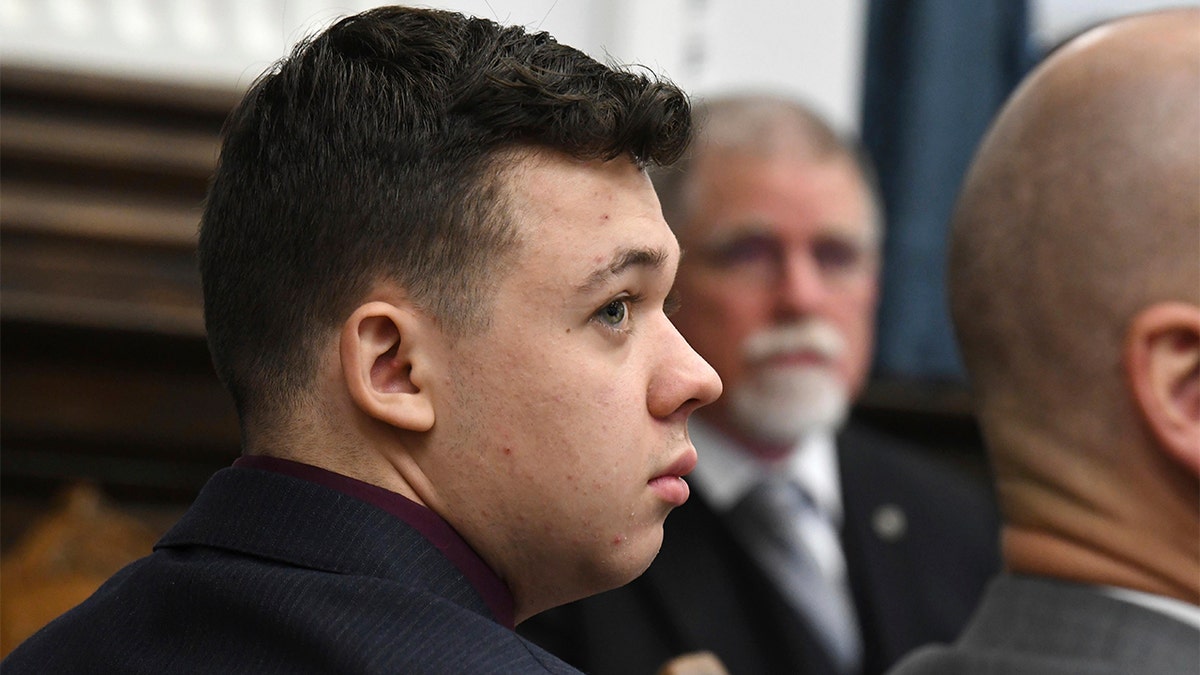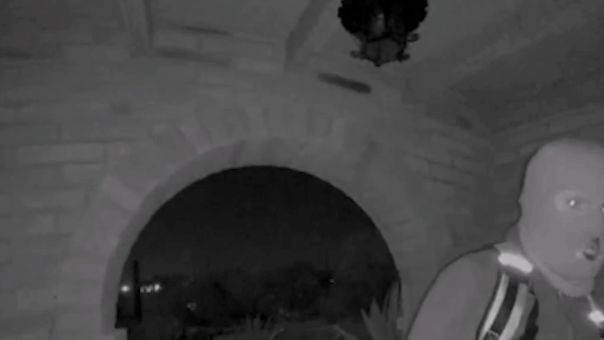Kyle Rittenhouse trial: Was decision to take the stand the right one?
Attorney Jonathan Turley breaks down the heated first day of the teen's murder trial.
Kyle Rittenhouse took the witness stand Wednesday as he argued he fired in self-defense when he shot three people in August 2020 during demonstrations in Kenosha, Wisconsin that broke over the police shooting of Jacob Blake.
Rittenhouse, 18, has argued the men had attacked him. To win an acquittal on self-defense, he must show he reasonably feared for his life and used an appropriate amount of force. His testimony was the best way to give jurors insight into what he was thinking, legal observers say, but it exposed him to prosecutors’ cross-examination.
Rittenhouse testified that Joseph Rosenbaum twice threatened to kill him, chased him and grabbed for his gun. He also testified Anthony Huber hit him with a skateboard twice and tried to take his gun and Gaige Grosskreutz pointed a pistol at him. Rittenhouse cried as he described how Rosenbaum chased him. But he mostly kept his composure as he spent hours fielding questions from his attorneys and prosecutors.
Rittenhouse said repeatedly that he felt he had to shoot the men to protect himself.
KYLE RITTENHOUSE: PROSECUTORS COULD BE BARRED FROM RETRYING DEFENDANT: LIVE UPDATES
"From what I saw, he solidified his defense and showed himself to be very human," Phil Turner, a Chicago-based defense attorney and former federal prosecutor, told The Associated Press. "His crying appeared very genuine. I think the jury got more of a sense of him as a young person. It’s always a difficult decision to put someone on the stand … but from what I could see of the cross-examination, it was way off-target."
Assistant District Attorney Thomas Binger began by asserting that Rittenhouse intended to kill all three men, which Rittenhouse repeatedly denied, saying he did only what he had to do to stop the person attacking him. Binger also asked Rittenhouse if he played shoot-’em-up video games.

Kyle Rittenhouse watches as Dr. John Black testifies during his trial at the Kenosha County Courthouse in Kenosha, Wisconsin, on Thursday, Nov. 11, 2021. (Mark Hertzberg /Pool Photo via AP)
He asked Rittenhouse why he was talking about the shootings now for the first time, drawing the ire of Judge Bruce Schroeder. Prosecutors typically don’t question why a defendant has remained silent because defendants legally aren’t required to say anything.
"This is a grave constitutional violation for you to talk about the defendant’s silence," the judge told the prosecutor. "You’re right on the borderline. And you may be over. But it better stop."
Binger also tried to ask Rittenhouse about a video that shows him telling his friend – 15 days before the protests – that he would like to shoot suspected shoplifters. Schroeder ruled in a pretrial hearing earlier this year that wouldn’t be allowed, although he said he might revisit the decision. But Binger went ahead with his questions Wednesday without getting permission from the judge.
Both moves led to Rittenhouse’s attorneys filing a motion seeking a mistrial with prejudice. Such a declaration would end the trial and block prosecutors from ever charging Rittenhouse again with anything in connection with the shootings. Schroeder said he would take the motion "under advisement." It was unclear when he might rule.
Laurie Levenson, a law professor at Loyola Marymount University, told The Associated Press she thought Rittenhouse came off as "quite coached."
"This is a big credibility call for the jury," she said. "The jury can either see [Rittenhouse] as a clueless kid or he’s trying to evade answering questions. It can hurt him if the jury doesn’t think he’s sincere."
LEBRON MOCKS RITTENHOUSE'S COURTROOM BREAKDOWN: ‘WHAT TEARS? KNOCK IT OFF’
Chaotic demonstrations broke out in August 2020 after a White Kenosha police officer shot Jacob Blake, a Black man, during a domestic disturbance. Despite media initially pushing the narrative that he was unarmed, prosecutors showed video supporting that Blake was holding a knife and Blake later admitted himself on national television that he had a knife in his hand before he was shot. The shooting sparked several nights of rioting that saw multiple businesses set on fire. Gov. Tony Evers was forced to call out the National Guard to support local police.
Prosecutors endeavored to show Rittenhouse’s fears for his life on the night of Aug. 25, 2020 weren’t justified. But successive state witnesses, legal experts said, seemed to buttress the defense assertion that Rittenhouse had good reason to be afraid.
Grosskreutz is another state witness who may have helped the defense case as much as the prosecution’s. He testified that he carried a loaded pistol that night and acknowledged that it was aimed at Rittenhouse when Rittenhouse shot him — although Grosskreutz maintained he didn’t intentionally aim the gun and said he wouldn’t have fired.
Ryan Balch, a military veteran who carried an AR-style rifle that night and patrolled with Rittenhouse, told jurors how Rosenbaum made ominous threats within earshot of Rittenhouse.
"If I catch any of you guys alone tonight I’m going to f--- kill you!" he recalled Rosenbaum shouting.
Another witness, videographer Richie McGinniss, described Rosenbaum chasing Rittenhouse and lunging for Rittenhouse’s gun. When prosecutor Thomas Binger pressed McGinniss to concede he didn’t know what Rosenbaum’s intent was, McGinniss had a pointed answer.
"Well," McGinniss promptly replied, "he said, `F--- you.′ And then he reached for the weapon."
McGinniss also described Rittenhouse as appearing to do all he could to flee and even shouting, "Friendly, friendly, friendly!" at Rosenbaum to convey he meant no harm.
Prosecutors made at least one unforced error that allowed evidence favorable to the defense that otherwise would have been barred. It happened with Rosenbaum’s fiancée, Kariann Swart, on the stand, when a prosecutor asked her if Rosenbaum had taken medication earlier on the day he was shot.
CLICK HERE TO GET THE FOX NEWS APP
By asking that question, the judge ruled, prosecutors opened the door for the defense to ask Swart what the medication was for. Under cross-examination, she told jurors it was for bipolar disorder and depression. In self-defense cases, the mental health history of an alleged aggressor isn’t considered relevant unless the person who used deadly force was aware of it, which Rittenhouse wasn’t. But getting Rosenbaum’s mental health in front of jurors could add credibility to the idea that Rosenbaum was an unstable aggressor.
The Associated Press contributed to this report.











































